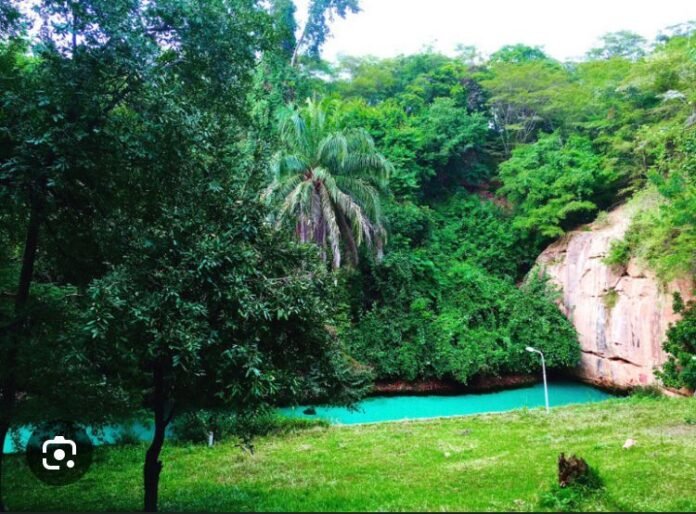Yankari Game Reserve is a large wildlife park and former national park located in the south-central part of Bauchi State, in northeastern Nigeria. It covers an area of about 2,244 square kilometers and is home to several natural warm water springs, as well as a wide variety of flora and fauna. Its location in the heartland of the West African savanna makes it a unique way for tourists to watch wildlife in its natural habitat. Yankari was created as a game reserve in 1956, but later designated Nigeria’s biggest national park in 1991. It is the most popular destination for tourists in Nigeria and plays a crucial role in the development and promotion of tourism and ecotourism in Nigeria. It is also a popular eco-destination in West Africa.

Some of the main attractions of Yankari Game Reserve are:
- The wildlife: Yankari is an important refuge for over 50 species of mammal, including African bush elephants, olive baboons, African buffaloes, and hippopotamuses. There are also over 350 species of bird found in the park. Yankari is recognized as having one of the largest populations of elephants in West Africa, estimated at more than 300 in 2005. The best time to visit Yankari Game Reserve to see the wide range of animals is during the dry season (between October and May).
- The warm springs: Yankari Game Reserve has four warm water springs as a result of underground geothermal activity. The most famous of these is the Wikki Warm Spring, which has a constant temperature of 31.1°C and is open for swimming 24 hours a day. The other springs are Dimmil, Gwan, and Nawulgo springs, which are also suitable for bathing.
- The hills, caves, and historical sites: Yankari Game Reserve also has a diverse landscape of hills, caves, and historical sites to explore. The highest point in the park is Kariyo Hill, at 640 meters above sea level. There are also several caves, such as the Dukkey Wells, the Tunga Dutse, and the Kalban Hill caves, which have interesting rock formations and ancient graffiti. The park also has some evidence of earlier human habitation, such as old iron smelting sites and the Marshall Caves, where the British colonial officer Major A.J. Marshall was killed by local warriors in 1906.
Make it a point in your Life’s bucket list to visit the Yankari Game Reserve in Nigeria.




